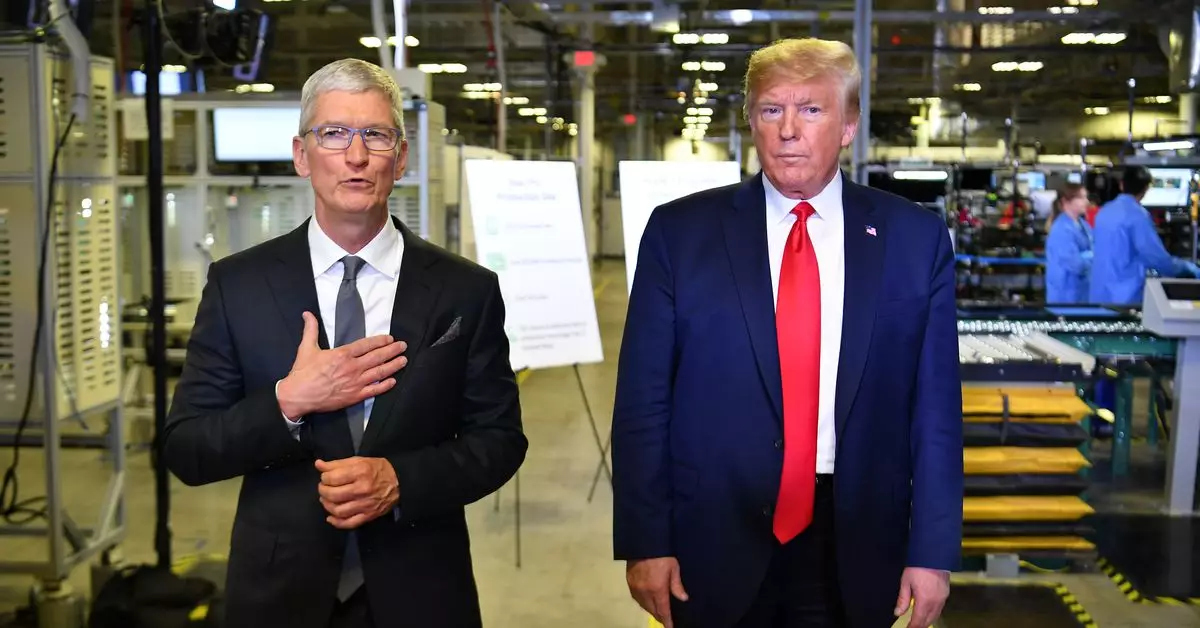In an era where politics and corporate strategy intertwine more than ever, the ability to cultivate relationships with influential political figures can determine the fate of tech companies. A noteworthy instance of this is Apple CEO Tim Cook’s rapport with former President Donald Trump during his administration. As noted in a recent Wall Street Journal article, Cook’s approach has drawn significant attention, prompting other industry leaders to consider adopting similar strategies to gain political favor.
Cook’s methodology diverged from the conventional tactics employed by most corporations. Instead of delegating communication to lobbyists or government relations professionals, he opted for a more personal touch by engaging Trump directly via phone calls and private dinners. This direct line of communication helped establish a level of trust and rapport that other executives struggled to achieve. By simplifying the conversation and focusing on one crucial data point during meetings, Cook ensured that discussions remained productive and targeted, preventing distractions that can arise from complex policy discussions.
This streamlined approach not only benefited Apple in terms of favorable tax policies and tariff negotiations but also positioned Cook as a key player in political discourse within Silicon Valley. His ability to present a singular focus during meetings allowed him to communicate Apple’s needs effectively while aligning them with Trump’s agenda, which in turn helped him bolster his company’s interests.
The strategy Cook employed highlights a critical aspect of successful corporate-political relations: finding common ground. By identifying overlap between Apple’s objectives and Trump’s policy ambitions, Cook was able to keep the dialogue relevant and advantageous for both parties. The Wall Street Journal report emphasizes that this relational model is now seen as a blueprint by other major corporations, including Boeing and FedEx, who are attempting to mimic his methods.
Furthermore, Cook’s decision to allow Trump to claim credit for Apple’s achievements, such as the Austin manufacturing facility, reflects a willingness to engage in a mutually beneficial exchange—a rarity in today’s cutthroat corporate landscape. This acumen has sparked discussions among other tech leaders, who are now evaluating how best to approach Trump or his associates to achieve similar outcomes for their companies.
As the political environment continues to evolve, tech executives may find themselves under increasing pressure to engage with political figures in a manner that is both respectful and strategically advantageous. While Cook’s relationship with Trump may not work for every leader or organization, it serves as a case study in the potential benefits of personal engagement, focused communication, and strategic alignment with larger political goals.
Ultimately, the blending of corporate interests with political strategy demands a deft hand and a willingness to navigate these complex waters. As seen with Cook’s successful interactions, the ability to forge impactful connections is a skill that may very well dictate which companies thrive in an increasingly interwoven landscape of technology and governance. With the ever-changing political climate, the need for effective relationship-building will likely remain a cornerstone for corporate success in the years to come.

